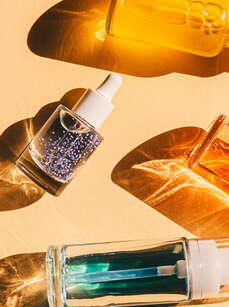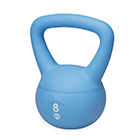POPSUGAR
Trending Stories
Spotlight
Introducing
01/01/1970
The Beauty Sustainability Challenge
These tiny (and expert-backed) tweaks can help you live a more sustainable lifestyle.
Read More
Every editorial product is independently selected by our editors. If you buy something through our links, we may earn commission.
:extract_cover()/2024/04/12/820/n/1922729/tmp_sSI6XI_fe25edd5186c0f58_Main_PS24_04_Identity_YoungPeopleDiagnosedWithCancer_1456x1000.jpg)
:extract_cover()/2024/04/16/728/n/1922729/tmp_75b30W_89ba11e63315cb85_Main_PS24_04_Identity_FlaujaeJohnson_1456x1000.jpg)
:extract_cover()/2024/04/16/952/n/1922441/92d5a354661ef2d75a2221.02689297_.jpg)
:extract_cover()/2024/04/16/907/n/1922283/tmp_ISyHrU_e0490ceddb7707eb_Main_PS24_Juntos_SelenaQuintanila_1456x1000.jpg)
:extract_cover()/2024/04/15/892/n/1922441/7c3ebf5c661d8d22cc3205.20465363_.jpg)
:extract_cover()/2024/04/11/917/n/1922153/6e834c1566184f853f2673.07667178_.jpg)
:extract_cover()/2024/04/16/716/n/49351082/931e50cb661ea341b35388.06279410_.jpg)
:extract_cover()/2024/04/18/825/n/3019466/58d5ede666216b2863d248.87443275_.jpg)
:extract_cover()/2024/01/19/993/n/1922794/99e2f79e65aafca3d1e977.96984305_.webp)
:extract_cover()/2024/04/16/703/n/1922441/6b977a7a661e9eb704a4b3.28665086_.jpg)




:extract_cover()/2024/04/22/931/n/1922283/f830e2686626d4afb3a6c3.42111761_.jpg)
:extract_cover()/2024/04/18/908/n/1922283/556b59596621870d8a4705.73261695_.jpg)
:extract_cover()/2024/04/17/631/n/1922283/2772bd03661fd80962cdc3.40857743_.jpg)
:extract_cover()/2024/04/12/029/n/1922283/283c35b26619c6d033b245.43898085_.jpg)
:extract_cover()/2024/04/22/180/n/1922564/e053c58d662729043635a3.53124429_.jpg)
:extract_cover()/2024/04/21/734/n/1922564/725659a7662540c434a026.79322351_.jpg)
:extract_cover()/2024/04/19/984/n/1922564/9706a06d6622f20b772668.08678751_.jpg)
:extract_cover()/2023/04/11/971/n/1922564/1fcc87c16435dcbb2f4d50.95099014_.jpg)
:extract_cover()/2024/04/23/949/n/1922153/04f8114666282c8762c1e1.18783094_.jpg)
:extract_cover()/2023/09/22/706/n/1922153/04f81a16650db956026be0.32092906_.jpg)
:extract_cover()/2022/08/01/970/n/1922153/b57f741e62e85105cf8d07.43150777_.jpg)
:extract_cover()/2024/04/23/937/n/1922153/4af54d026628282f0836c3.45433008_.jpg)
:extract_cover()/2024/04/23/927/n/3019466/3de9b43a6628250b905a41.24137391_.jpg)
:extract_cover()/2023/12/22/887/n/1922441/f943afff6585eee266c6b3.92524394_.jpg)
:extract_cover()/2024/04/23/875/n/1922729/c9ab144866281386e329b4.21337116_.jpg)
:extract_cover()/2024/04/23/886/n/3019466/4f2692a066281725122656.54060329_.jpg)
:extract_cover()/2023/01/26/768/n/24155406/9195b96863d2b7e43da895.14342504_.jpg)
:extract_cover()/2024/04/22/852/n/24155406/7823b7516626ba30c507f7.57318212_.jpg)
:extract_cover()/2024/04/22/880/n/24155406/4485254b6626c3870c1715.18119828_.jpg)
:extract_cover()/2024/04/09/791/n/24155406/40c9d8f966158235c33aa5.52886392_.jpg)
:extract_cover()/2024/04/23/854/n/49352476/c364232d66280c7cb07ef8.51925790_.jpg)
:extract_cover()/2024/04/23/861/n/1922441/e3e324be66280eabdab035.06142204_.jpg)
:extract_cover()/2022/12/14/949/n/1922441/7162da90639a4442efdb37.23090248_.jpg)
:extract_cover()/2022/05/25/855/n/1922441/9c9b3479628e8416508513.90342604_.jpg)
:extract_cover()/2024/04/22/904/n/1922729/86e09e726626cbd474dac5.33437153_.jpg)
:extract_cover()/2024/04/17/812/n/1922398/c19c85d6662014fd5fea39.91320767_.jpg)
:extract_cover()/2024/04/19/812/n/1922398/c241ca8c6622b848a87926.28089400_.jpg)
:extract_cover()/2024/04/10/974/n/1922729/0dd4c042661711656238e1.07419166_.jpg)